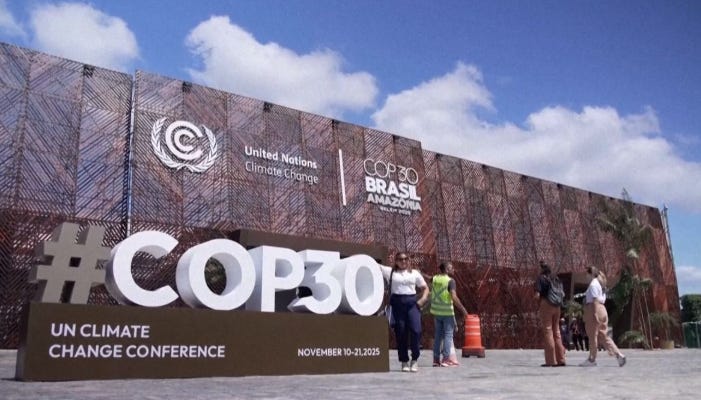The UN's Contempt for Democracy
It is the broader conversations around the UN that shed light on why we should resist global climate politics.
We are now halfway through the annual global festival of green hypocrisy, science abuse and rent-seeking, known as COP30 in Belem, Brazil. Each year bar one (delayed because of the pandemic), 99.999% of the world has been excluded from the ritual of this United Nations climate conference, while governments, billionaire-funded NGOs and transnational corporations seek deals between themselves to remake the world at our expense. From the early days of the UN Framework Convention on Climate Change (UNFCCC) meetings, hopes for a global one-size-fits-all emissions reduction policy have faded. And the process has produced notable failures. We make take some satisfaction in that, but it would be premature to celebrate either the failure of this COP meeting, or the broader process. And it is the broader conversations around the UN that shed more light on why we should resist global climate politics than the detail of any one conference.
It was historian of the green movement, Rupert Darwall, who explained this to me. Much of the UN’s green agenda is credited to the late Canadian oil man and latterly green technocrat, Maurice Strong, who convened the UN Environment Programme (UNEP) in the 1970s. Strong, explains Darwall, “understood the nature of power in modern world and the fear people have of being left out.” Once the agenda of endless meetings had been established, “people have this terrible nervousness of being left out of these very important meetings, not being at the top table.” The world’s Great and Good having been drawn in, continues Darwall, is the greater part of the process establishing itself. At the UNEP meeting convened by Strong in 1972, he was asked: “what is the policy?” “The process is the policy,” replied Strong.




